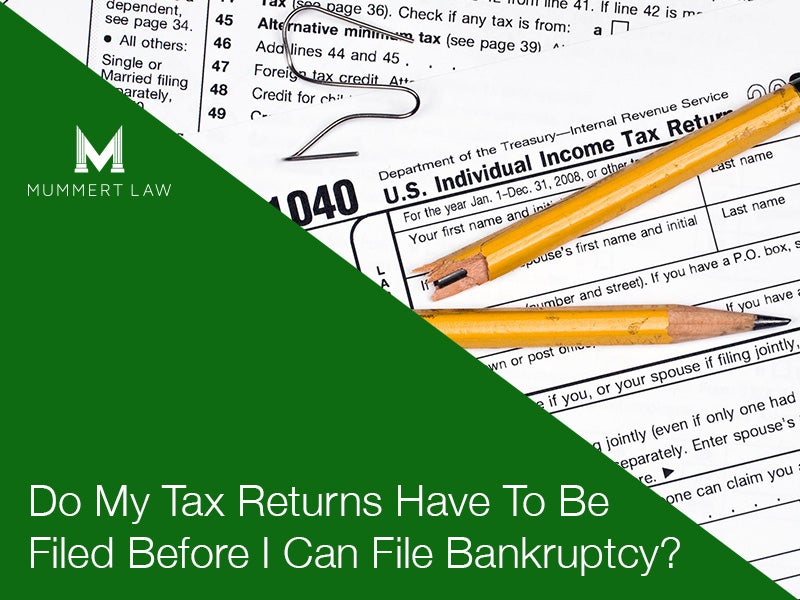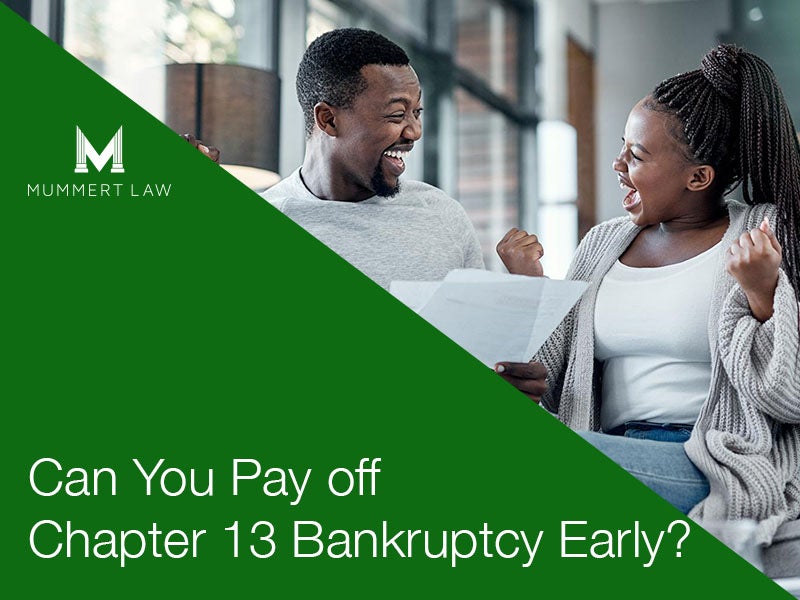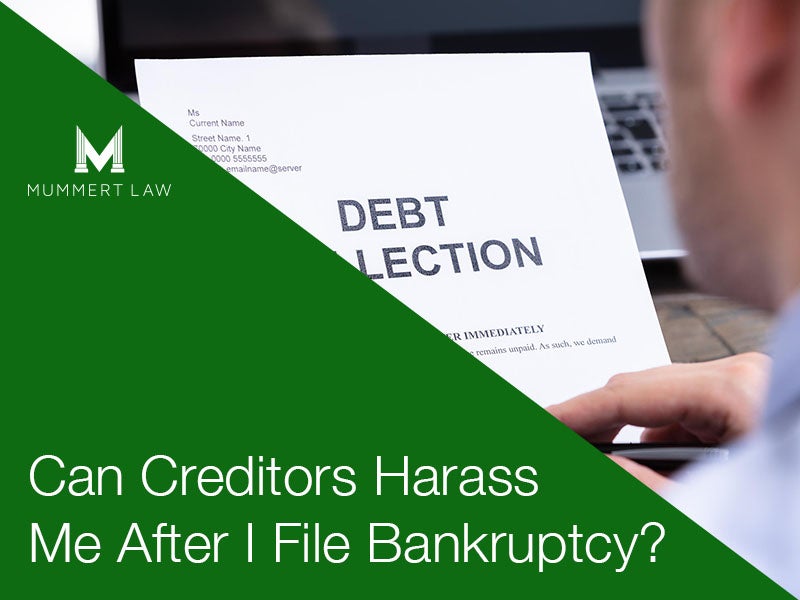-
Do My Tax Returns Have To Be Filed Before I Can File Bankruptcy?

Filing for bankruptcy without filing your tax returns can lead to many questions. One is whether you need to file your tax returns before bankruptcy. We’ll share key insights to help answer your questions so you can make the best decision for yourself and your family.
Chapter 7 Bankruptcy
Chapter 7 is designed to discharge most, if not all, of your debt in exchange for your property.
Your Tax Returns Don’t Have To Be Current with Chapter 7
There isn’t a rule stating that your tax returns must be current upon filing Chapter 7. However, you must provide your assigned trustee with a copy of your last filed return and accurate financial information. Your trustee will verify if your tax returns support the financial information you provided.
Suppose you filed your most recent return longer than the year before your bankruptcy. In that case, your trustee might ask for an explanation. A valid reason could include not working the year prior. However, the bankruptcy court could deny or discharge your bankruptcy filing if you aren’t honest or if you are missing information.
When Your Tax Returns Aren’t Current
If your tax returns aren’t current, any of your unfiled tax debts won’t be discharged. The Trustee may also take action requiring the filing of the tax returns to claim your tax refunds as an asset of the bankruptcy estate.
Chapter 13 Bankruptcy
The intent of Chapter 13 is for you to reorganize your debt. As a result, you can keep your valuable property (e.g., your house and cars) while paying off what you can over time. The repayment plan is typically set for three to five years.
Your Tax Returns Must Be Current When Filing Chapter 13
Unlike Chapter 7, your tax returns must be current when filing Chapter 13. Before the court approves your repayment plan, you must provide copies of your tax returns for the four most recent years. You must submit these to your appointed trustee before the 341 meeting of creditors. Suppose you aren’t required to file a tax return. In that case, you may have to submit a letter, affidavit, or certification with an explanation.
When Your Tax Returns Aren’t Current
You could impede your case if you haven’t filed your most recent tax return before your 341 meetings.
- Your trustee will file a motion, providing you with a short period to file your taxes and submit your returns. Upon missing the deadline, the court could immediately dismiss your case.
- The Internal Revenue Service may file a substitute return, estimating the amount you owe based on your previous income. These estimates could be higher than what you typically owe upon filing your taxes. This will result in problems in confirming your Chapter 13 Plan.
Remaining Current on Tax Returns After Filing Chapter 13
Because paying back your debt occurs over several years in Chapter 13, it’s essential to remain current on your tax returns. Your trustee will require your local, state, or federal returns each year of the repayment plan process. If your returns become delinquent, your case could be dismissed.
Whether you’re filing Chapter 7 or Chapter 13, we at Mummert Law recommend being current with your tax returns. Being up-to-date causes fewer potential hindrances to your case. You’ll have a better opportunity to attain a fresh financial start. Although it can be challenging, we can help you discover the right option for you and your family. We’re available for a consultation. We’ll sit down together, evaluate your position, and determine how to proceed. So don’t go it alone when it comes to bankruptcy. Make your appointment with Mummert Law today!
-
Can You Pay off Chapter 13 Bankruptcy Early?

When you file for a Chapter 13 bankruptcy in Maryland, you agree to pay back a portion or all of your debt using your future income. The payment plan amount is based on your future income and the amount of debt to be repaid and usually lasts between three and five years. Once you’ve repaid the total amount owed, the rest is discharged according to the agreement between the court and your creditors.
But if you’ve come into some money before the payment plan is over, you may want to pay off the rest of your debt to move on with discharge. While you may be able to pay off your Chapter 13 bankruptcy early, it might not be in your best interest to do so.
The Specifics of Your Chapter 13 Bankruptcy Matter
No law says you can’t pay off your bankruptcy debt early. But before you do, you should consult a bankruptcy attorney first to ensure it won’t negatively affect your payment plan.
If your payment plan was created to pay back 100% of the debt you owe, you shouldn’t face any issues repaying it early. But if the program doesn’t repay 100% of the debt owed, the courts may require you to include it in your bankruptcy filing.
Once the Trustee is aware of the increase in your estate, it could trigger an amendment to your payment plan. The amended plan may require you to pay more of the debt owed, resulting in higher payments for the rest of the planned time.
The Benefit of Sticking With Your Existing Plan
Even though it’s an attractive option to repay your debt early to move on from your Chapter 13 bankruptcy, you are probably better off sticking with the plan already in place. Of course, suppose you owe 100%, and your debts have just been restructured to prevent more delinquencies on your credit or foreclosure of your home. In that case, you’re probably safe paying it early.
If you owe less than 100%, you are usually better off saving the extra money you have now. This way, you can ensure you have the money to pay your payment plan on time until you pay it in full. Once you’ve paid it off, the rest of your outstanding debts will be discharged, and you will owe nothing more.
Find Out the Best Choice For Your Bankruptcy Situation
The law is complicated in Maryland, and bankruptcy law is no exception. Most people would benefit from not repaying their Chapter 13 bankruptcy early. Some would find that getting discharged early is a valuable solution to their problem. If you’re unsure if your situation is the exception to the rule, don’t hesitate to reach out to Mummert Law.
We can schedule a consultation to sit down together, and discuss your bankruptcy situation, how you’ve come into the money, and whether it would benefit you to end your payment plan early. Schedule an appointment with us today, so we can help you make the right decision.
-
Can Creditors Harass Me After I File Bankruptcy?

Bankruptcy offers a solution to financial problems, allowing you the possibility to get back on track and create a fresh start. But once you file, you may be asking yourself various questions, including, “Can creditors harass me after I file for bankruptcy?” Generally, creditors cannot continue to contact you regarding your debts after filing for bankruptcy, though there are exceptions.
The Automatic Stay
Right after you file for bankruptcy, an automatic stay is usually imposed.
What is an Automatic Stay?
An automatic stay briefly prevents collection agencies, creditors, government entities, and others from tracking down debtors for the money you owe. Therefore, creditors can’t contact you upon filing to collect your debt, such as credit cards and other unsecured debts. The automatic stay will typically end at the close of the bankruptcy case or if the debts are discharged.
Exceptions to the Automatic Stay
There are several exceptions where creditors or agencies can collect pre-bankruptcy debts. Those include obligations associated with:
- Criminal cases
- Certain child support actions
- Specific eviction cases
Note – The automatic stay doesn’t apply to debts you incur after filing.
Requesting to Lift the Automatic Stay
A creditor may request that the bankruptcy court lift the automatic stay, but this typically only happens if:
- The creditor has collateral-secured debt (e.g., a house or car)
- The creditor could lose money if they’re forced to wait until the completion of the case
What Do You Do if Collection Agencies Violate the Automatic Stay?
If no exception or lift applies, and the court hasn’t ended or changed the automatic stay, then a creditor’s attempt to collect is often a violation of the order. The following are ways you can manage collection agencies who contact you about your debts.
1. Ensure your creditor list is complete and accurate when you file.
The clerk of court notifies any creditor that you list when you file that a bankruptcy petition has been filed. This list lets collectors know they cannot call you or attempt to collect the debt without permission from the US Bankruptcy Court.
2. Inform the collector that you’ve filed for bankruptcy.
Often, creditors are unaware of your case, and this step alone will typically cause them to correct their violation. Also, share with your creditor if you’re working with an attorney. They should make any future communication with your lawyer instead of you.
3. Report the actions to the bankruptcy court.
Notify the bankruptcy court if the collection agency doesn’t stop and correct their violation. The court could sanction the agency if the collector’s actions were willful. The action is deemed willful if:
- The order was in place and violated
- The creditor knew of the filing and ignored the court’s order or failed to take corrective action upon learning of the case
- The collection agency acted with intent
4. File a lawsuit against the creditor.
If the collection agency continues to violate the automatic stay, it could also violate other state or federal laws. You can file a separate lawsuit to obtain potential penalties or damages.
If you are considering filing bankruptcy or have already filed and are being contacted by creditors, Mummert Law can help! We are available for a consultation. We’ll sit down together, evaluate your position, and determine how to proceed. So don’t go it alone when it comes to bankruptcy. Make your appointment with Mummert Law today!

